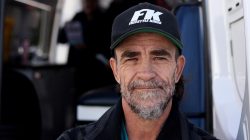Medical
Experts have pinpointed reasons behind the minimal uptake of health insurance in Nigeria, even though the federal government made it compulsory for all citizens and legal residents via the National Health Insurance Authority Act of 2022.
The National Health Insurance Scheme, set up in 2005, was superseded by the NHIA in 2022.
Even though the name has changed, the available information indicates that fewer than 20 million Nigerians are included in the health insurance program in a nation with more than 200 million inhabitants.
As stated by the NHIA, only 19.2 million individuals have signed up for health insurance plans since 2005.
Experts cited inadequate awareness, distrust, structural inefficiencies, and financial constraints as key reasons behind the low rate of health insurance enrollment amongst Nigerians.
During an independent interview with
PUNCH Healthwise,
The senior public health specialists stated that approximately 90 percent of Nigerians lack coverage from any type of health insurance.
They mentioned that this development was increasing dependence on personal expenses for healthcare, which has been recognized as a factor contributing to poverty among Nigerian families and deteriorating the nation’s health statistics.
Professor Tanimola Akande, a public health physician from the University of Ilorin, pointed out that ignorance, poverty, and distrust in the government are key factors behind the low adoption rate of health insurance.
“There has been a minor uptick recently in health insurance coverage. Nonetheless, nearly 90 percent of Nigerians remain uninsured under the current health insurance program,” Akande stated to our correspondent.
The public health professor stated, “Healthcare coverage varies significantly across different regions in Nigeria. The insufficient levels of coverage can be attributed to several factors such as lack of knowledge about the advantages of health insurance programs, economic hardship due to poverty, inadequate accessibility to high-quality healthcare services because of geographic barriers, and minimal efforts made towards raising awareness amongst the Nigerian population.”
The ex-National Chairman of the Association of Public Health Physicians of Nigeria pointed out that despite being knowledgeable about these programs, numerous individuals feel disheartened due to their perceptions regarding the standard of healthcare delivered. He emphasized, “A significant hurdle is the absence of faith in the government’s ability to deliver high-quality medical services post-enrollment.”
Akande pointed out that the difficulties faced by those in the informal economy and people living in rural areas were exacerbated by inadequate mobilization efforts and different healthcare practices.
“The key elements for involving the informal sector revolve around their limited understanding of the program and its advantages, as well as inadequate engagement with this group. Additionally, subpar access to high-quality healthcare in remote areas plays a significant role,” he explained.
“The significant support for complementary medicine over conventional treatment by these individuals is also a crucial aspect,” the public health professor noted.
Akande suggested implementing comprehensive reforms and effective communication strategies to restore confidence. He stated, “In order for the government to enhance trust within the presently fragile public healthcare framework, they must guarantee that resources are properly and fairly distributed across the nation.”
He emphasized the importance of hiring experienced staff, modernizing infrastructure, and ensuring a steady availability of medications and supplies. “Additionally, the administration must implement multiple approaches to raise awareness about health education and encourage people to participate in healthcare insurance programs,” Akande stated.
Regarding this issue, Professor Adebayo Onajole, who specializes in Community Medicine and Epidemiology, pointed out that the low usage rate can be blamed on the financial burdens and administrative obstacles encountered by many Nigerians attempting to utilize their health insurance.
numerous Nigerian individuals run their own businesses and do not receive their income in large sums at once. Additionally, navigating the complex administrative processes can be overwhelming. For instance, one must consult with service providers and obtain documents from Health Maintenance Organizations (HMOs). This process may prove challenging for people who lack sufficient education to easily manage these requirements.
“And once they reach the service providers, these professionals will inform them, ‘This is covered, but this isn’t,’ ” he continued. “They remain unaware of the full scope of their coverage, which often leads many individuals to feel let down.”
Onajole highlighted a lack of transparency in insurance policies, noting that many individuals still face higher out-of-pocket costs despite being formally covered.
It’s a field where payments are being made; I’m referring to those who have coverage. However, there isn’t clear information about exactly what is included. Often, the amount paid exceeds what should theoretically cover.
He similarly condemned the inefficiencies within Health Maintenance Organizations (HMOs), stating that the strictness of their claim procedures often leads individuals to give up entirely.
“However, overall, insurance remains the best option. Since health insurance involves sharing resources and distributing risks,” he clarified, simultaneously advocating for more rigorous oversight of Health Maintenance Organizations (HMOs) and healthcare providers to guarantee adherence and responsibility.
Experts suggested large-scale awareness initiatives, active community participation, and more stringent rules to increase coverage in the upcoming years.
The don stated, “For the nation to attain Universal Health Coverage (UHC), the government must significantly expand present initiatives focused on reaching UHC. While the creative approach of employing the Basic Health Care Provision Fund for covering low-income individuals and marginalized communities deserves praise, it is essential to swiftly amplify this effort by boosting the allocation from the Consolidated Revenue Fund to a minimum of 2%.”
On his side, Onajole urged for immediate changes.
“There should be various approaches, including some anonymous ones, to assess their effectiveness and scrutinize the loopholes continuously, making corrections as needed,” the professor stated.
Efforts to expand are in progress – NHIA
In the meantime, the NHIA states that they have initiatives and reforms in place with the aim of broadening the scope, fairness, and effectiveness of healthcare coverage throughout Nigeria.
In discussions with PUNCH Healthwise, Dr. Kurfi Abubakar, who serves as the NHIA Director of Planning, Research, and Statistics, stated that the organization’s current initiatives revolve around four main foundations.
As per his view, the main supports consist of broadening coverage, bettering equity, upgrading the standard of care, and enhancing market efficiency.
“We strive to narrow the divide between those who have access to healthcare and those who do not. Our focus is on priority groups such as children under five years old, expectant mothers, senior citizens, individuals with disabilities, and persons experiencing significant financial burdens due to medical expenses—such as cancer patients or those suffering from sickle cell disease,” he stated.
Regarding the progress made so far, he highlighted substantial growth in enrollment during the last two years. He stated, “Although I don’t have the exact percentage at hand, I can confirm that more than 20 million Nigerians now benefit from health insurance. This represents a remarkable accomplishment.”
In response to ongoing complaints about delayed service delivery, he stated, “The NHIA has recognized this issue and has implemented crucial measures to guarantee such delays do not occur in the future.”
“For instance, the NHIA has set a deadline of one hour for healthcare providers and Health Maintenance Organizations (HMOs). After an individual enrolls in health insurance, they should be provided with a referral code within this hour if further medical attention is required. Should this code fail to be issued, the healthcare provider is still directed to proceed with treatment, knowing that payment from the NHIA will cover their services,” he explained.
He went on to say, “An additional factor contributing to the delays was the tariff—what NHIA offered previously. However, under current leadership, the tariff has undergone an update, resulting in service fees rising up to 600%. This adjustment reflects the prevailing economic conditions.”
In order to ensure accountability among Health Maintenance Organizations (HMOs), Abubakar stated that the National Health Insurance Authority (NHIA) has created detailed operational guidelines and is entering into fresh agreements to enforce adherence.
“At present, the NHIA is entering into Memorandums of Understanding with various HMOs. These agreements will outline the specific responsibilities—detailing what is expected from each party,” he explained.
Provided by SyndiGate Media Inc.
Syndigate.info
).




